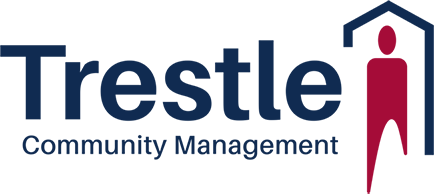When Should HOAs Be Flexible On Management Fees?
Don’t let collecting homeowners association fees keep you up at night. Knowing what to expect and how to work with HOA residents is important, but sometimes situations arise that require a little more flexibility. In some situations, it is better to bend for your community members rather than risk them leaving the community altogether.
Here are some things HOA boards can do to ensure their residents understand they are still appreciated as part of the community despite late payments for HOA management fees.
Why Collecting HOA Fees Is Important
HOAs are a private entity run by a Board of Directors consisting of volunteers. Community associations benefit the community as a whole and help maintain property values. It is imperative that boards collect ongoing management fees to keep up with payments for community upkeep and service items like:
- Maintenance on the clubhouse, pool, walkways, and more
- Upkeep and landscaping on common grounds
- Reserve funds for future costs
- Amenities and services, like trash collection
- A property management company for common spaces
Every homeowner is responsible for paying HOA dues on time. Unfortunately, when payments come in late (or not at all), your association can’t deliver on approved budget items, maintenance, services, and amenities that residents depend on.
However, fighting with neighbors to get their payments in on time is a frustrating experience for all involved. When is it appropriate for board members to be flexible with delinquent payments? Sometimes offering payment options helps neighbors get caught up and preserve good relationships within your community.
Offer Payment Plans
Paying HOA fees late shouldn’t always mean that homeowners face steep penalties or even higher monthly rates in addition to penalties! Some HOAs offer payment plans where residents pay off all past due amounts over time, usually in installments lasting several months. This leniency may come with a small administrative fee that the HOA charges, but it’s a small price to pay to keep the community functioning smoothly and minimize tensions between a board member and their neighbor.
Make Sure You Communicate Well
HOAs should always communicate with delinquent homeowners before taking any legal action. Sending letters and e-mails is a great way to keep everyone updated on what’s going on, but sometimes personal meetings are better. In-person meetings give board members a chance to explain the importance of timely payments and answer any questions that residents may have. It also gives board members the opportunity to work out payment arrangements with homeowners on the spot.
Exempt Special Assessments
When an unexpected expense comes up – like repairing the clubhouse roof – HOAs often levy special assessments against all homeowners to cover the costs. Homeowners may owe a little every month until the assessment is paid off, and it can be frustrating if they already struggle to make payments on time for typical HOA management fees. Board members should consider making special assessments exempt from past due balances or penalties as long as homeowners pay them by their due date.
Offer Exemptions For Annual HOA Management Fees
Some HOAs waive late fees during the summer months when monthly dues are collected along with homeowner’s insurance premiums. This way, residents don’t have to worry about paying all of their bills on time just to avoid extra charges! Board members who work on flexible payment plans often reserve these exemptions for people who are consistently late but reliable in getting future payments on time.
Focus On Asking (Rather Than Legal Action)
It’s easy to get frustrated when residents don’t pay their HOA fees, but taking legal action tends to make things worse. Lawsuits can create hard feelings between neighbors and leave everyone involved feeling really discouraged about the community. Before filing any lawsuits or even before assessing penalties, HOAs should give homeowners every opportunity to settle up on their own.
If you need to move forward with legal action, work with the association’s attorney and a professional HOA management company. Using these professionals can minimize uncomfortable interactions between board members and their neighbors if a lawsuit becomes necessary.
Restrict Use to Amenities (If Needed)
A community management company might also recommend restricting a resident’s access to community amenities before taking legal action. Until they get up-to-date on delinquent management fee payments, homeowners can lose access to the pool, clubhouse, or other neighborhood features. Sometimes losing a few homeowners association benefits is enough to encourage residents to get caught up right away.
Professional HOA Management Companies Help With Management Fees
Managing an association is hard enough, but dealing with residents that fail to pay management fees on time can be frustrating and time-consuming. However, in some cases, a little flexibility helps a homeowner pay past-due amounts over time while preserving community relationships. Trestle Community Management understands the importance of upholding your organization’s mission statement and maintaining positive resident relations by utilizing strategies like payment plans for late payments or forgiving fines when possible. Contact us today if you need help collecting delinquent payments and managing your community.

%20(S).jpg)
%20(S).jpg)


